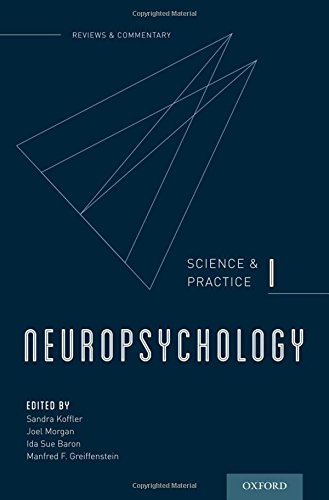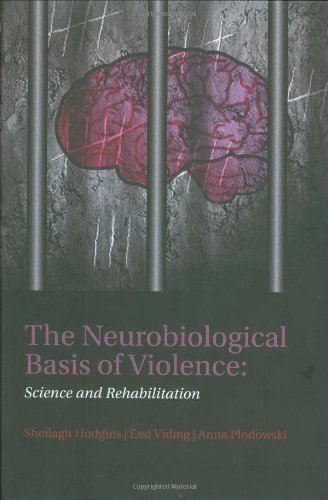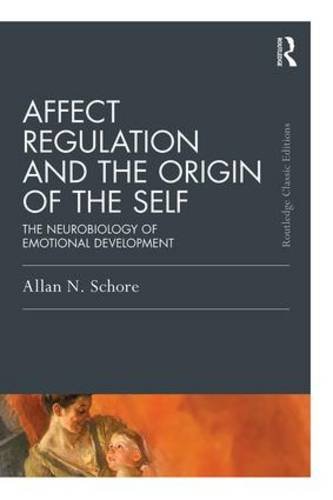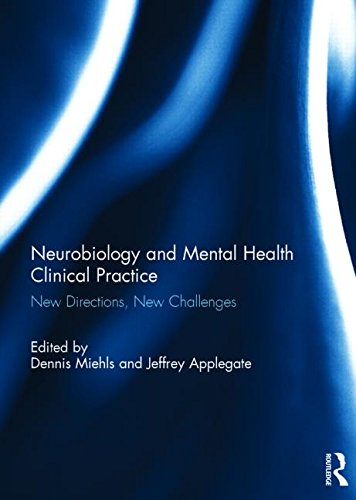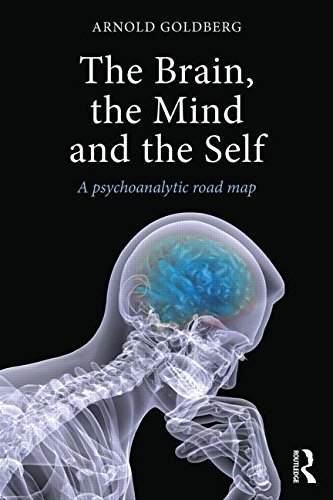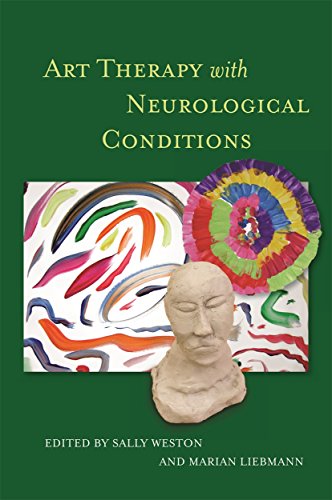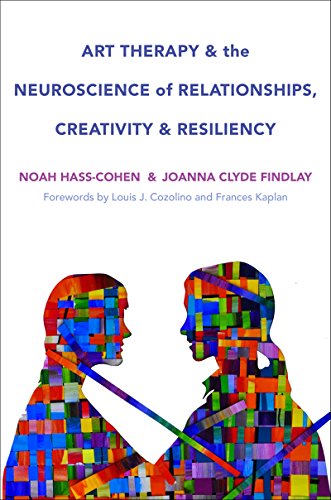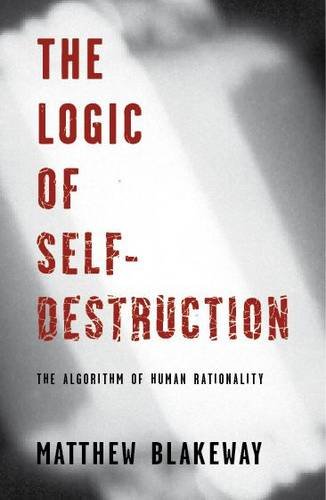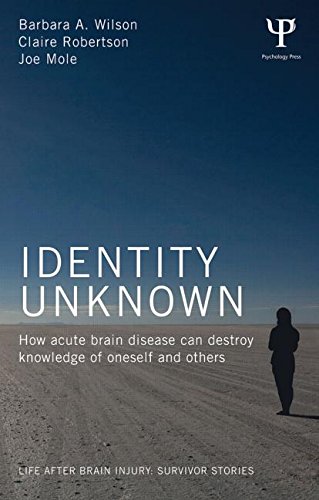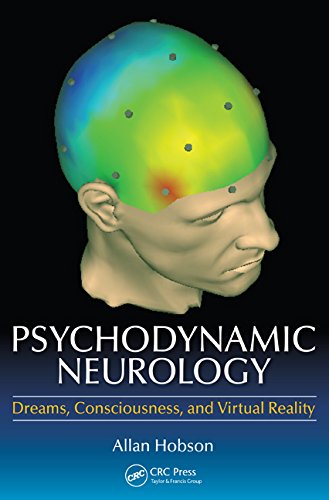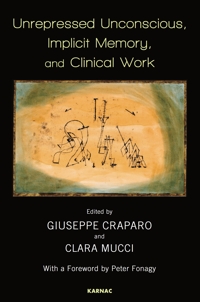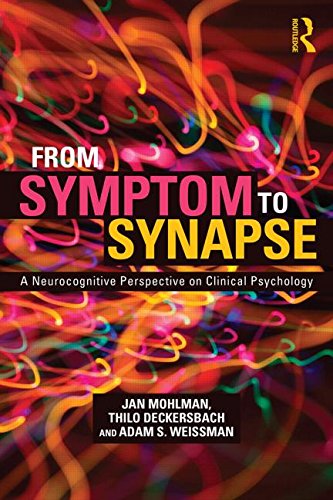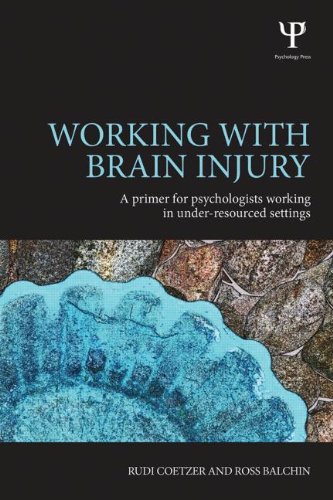Neuroscience Books
Neuropsychology: V.1
Neuropsychology: Science and Practice I - Review and Commentary is the first publication to provide a critical summary of the recent literature in the science and practice of clinical... (more)
The Neurobiological Basis of Violence: Science and Rehabilitation
In recent years, there has been an explosion of knowledge concerning the developmental processes that lead to persistent violent offending, and in particular, the neurobiological determinants.... (more)
Affect Regulation and the Origin of the Self: The Neurobiology of Emotional Development: Classic Edition
Decades ahead of its time, Affect Regulation and the Origin of the Self was the first volume to bring together the disparate fields of developmental psychology, psychiatry, and the neural sciences.... (more)
Understanding Other Minds - Perspectives from Developmental Social Neuroscience: Third Revised Edition
This book comprises 26 exciting chapters by internationally renowned scholars, addressing the central psychological process separating humans from other animals: the ability to imagine the thoughts... (more)
The Essential Difference: Men, Women and the Extreme Male Brain
Simon Baron-Cohen's The Essential Difference: Men, Women and the Extreme Male Brain is an unflinching look at the scientific evidence behind the innate sex differences of the mind. Men and women have... (more)
Neurobiology and Mental Health Clinical Practice: New Directions, New Challenges
This book illustrates the current findings of interpersonal neurobiology from leading mental health clinician-scholars that inform knowledge building and clinical practice. Representing the fields of... (more)
The Brain, the Mind and the Self: A Psychoanalytic Road Map
Psychoanalysis enjoyed an enormous popularity at one time, but has recently fallen out of favour as new psychiatric medications have dominated the treatment of mental illness and a new interest in... (more)
Art Therapy With Neurological Conditions
By creating a therapeutic outlet for self-expression and processing trauma, art therapy can play a powerful role in assisting people with a brain injury or neurological condition to adjust to living... (more)
The Psychomatrix: A Deeper Understanding of Our Relationship with Pain
What is pain? What does it mean to have a relationship with it and how does this affect your identity and existence? Doreen Francis' definition of pain is derived from that proposed by scientists,... (more)
Art Therapy and the Neuroscience of Relationships, Creativity, and Resiliency: Skills and Practices
The relational context is the most important component of arts-based therapy work. This book demonstrates how this is so, explains the major art relational neuroscience principles relevant to art... (more)
The Neuropsychology of the Unconscious: Integrating Brain and Mind in Psychotherapy
More than one hundred years after Freud began publishing some of his seminal theories, the concept of the unconscious still occupies a central position in many theoretical frameworks and clinical... (more)
The Cognitive Neuropsychology of Schizophrenia
This is a classic edition of Christopher Frith's award winning book on cognitive neuropsychology and schizophrenia, which now includes a new introduction from the author. The book explores the signs... (more)
The Logic of Self-Destruction: The Algorithm of Human Rationality
Understanding ourselves is the most complex problem that mankind has ever addressed. Figuring out whether time can flow backwards or why seagulls have yellow beaks is a cinch in comparison. Part of... (more)
Brainstorm: The Power and Purpose of the Teenage Brain
Between the ages of fifteen and twenty-five, the brain changes in important, and oftentimes maddening, ways. It's no wonder that many parents approach their child's adolescence with fear and... (more)
A History of the Brain: From Stone Age Surgery to Modern Neuroscience
A History of the Brain tells the full story of neuroscience, from antiquity to the present day. It describes how we have come to understand the biological nature of the brain, beginning in... (more)
Alcohol and the Adult Brain
The research literature on the impact of alcohol on the brain has seen a rapid expansion in recent years. Alcohol and the Adult Brain presents an up-to-date overview of some of the issues relevant to... (more)
Identity Unknown: How Acute Brain Disease Can Destroy Knowledge of Oneself and Others
Imagine being unable to recognise your spouse, your children, or even yourself when you look in the mirror, despite having good eyesight and being able to read well and name objects. This is a... (more)
Effective Psychotherapy for Individuals with Brain Injury
Combining scientific expertise with psychotherapeutic acumen, this book is highly accessible and packed with clinical tools. Part I provides essential information on how acquired brain injury affects... (more)
Psychodynamic Neurology: Dreams, Consciousness, and Virtual Realty
Our brains plan conscious experience in our sleep using our waking experience only to correct a built-in, virtual reality model of the world that becomes more fully active when we sleep. We become... (more)
Unrepressed Unconscious, Implicit Memory, and Clinical Work
Unrepressed Unconscious, Implicit Memory, and Clinical Work analyses the psychological and neurobiological characteristics of what nowadays goes under the name of “unrepressed unconscious”, as... (more)
Neurodevelopmental Disorders: A Definitive Guide for Educators
Developmental deficits in learning and communication in young children are defined as neurodevelopmental disorders. This constellation, newly defined in the DSM-5, represents a range of issues that... (more)
Attachment-Based Teaching: Creating a Tribal Classroom
An ideal text for teacher education and training, and even teacher-parent workshops, this book applies laboratory findings from cognitive neuroscience to the practicalities of the classroom. Louis... (more)
Touching a Nerve: Our Brains, Our Selves
What happens when we accept that everything we feel and think stems not from an immaterial spirit but from electrical and chemical activity in our brains? In this thought-provoking narrative—drawn... (more)
From Symptom to Synapse: A Neurocognitive Perspective on Clinical Psychology
The purpose of this book is to introduce clinical psychologists, other mental health practitioners, and researchers to the neurocognitive approach to assessing and treating psychiatric disorders. It... (more)
Casebook of Neuropsychiatry
Casebook of Neuropsychiatry is comprised of 38 clinical cases based on real patient interactions that straddle the domains of neurology and psychiatry. While scientifically rigorous and grounded in... (more)
Management of Adults with Traumatic Brain Injury
Traumatic brain injury (TBI) is a public health issue of worldwide proportions, affecting motorists, victims of interpersonal violence, athletes, military service members, and Veterans, among others.... (more)
Minding the Brain: A Guide to Philosophy and Neuroscience
This book explores how the relationship between philosophy and the brain can inform neuroscience, the mind-brain problem and debates about consciousness. Written in a lively style with extensive... (more)
Neuroscience for Counsellors: Practical Applications for Counsellors, Therapists and Mental Health Practitioners
This is an invaluable resource for counsellors and therapists looking to reinvigorate their practice and enhance their understanding of clients' needs. Each chapter focuses on different discoveries... (more)
Integrating Neuropsychological and Psychological Evaluations: Assessing and Helping the Whole Child
Integrating Neuropsychological and Psychological Assessments is a resource for neuropsychologists, psychologists, teachers and parents who wish to address both the neurologically- and... (more)
Working with Brain Injury: A Primer for Psychologists Working in Under-Resourced Settings
This book provides a hands-on resource for the development of essential skills and competencies in clinical neuropsychology. On a very practical level it addresses a question frequently asked by... (more)


